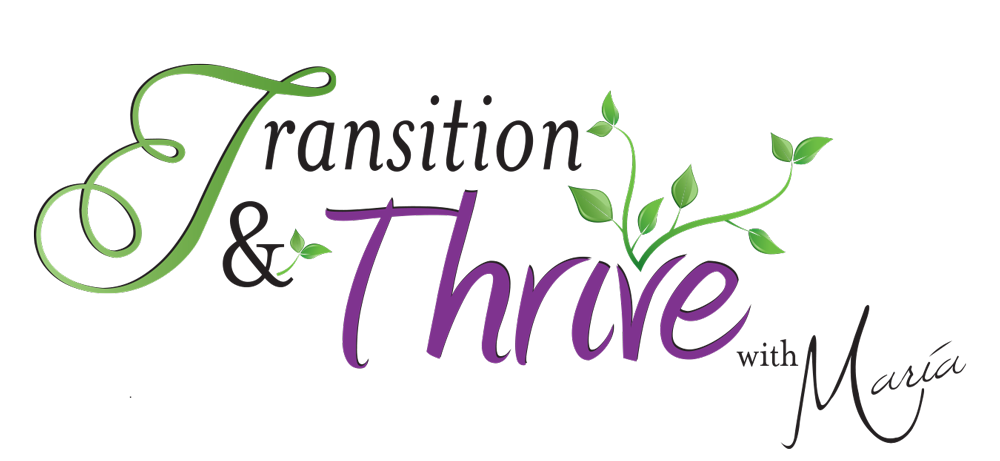Having been through a whole bunch of transitions in my own life, I have learned something—and that is, we can prepare ourselves for life’s curveballs—the ones we can see coming and the ones that come out of nowhere. It’s like having a contingency plan.
If you researched how to prepare for the unexpected, you would mostly find strategies and ideas related to planning financially for emergencies. And that might be a big part of your contingency plan.
But I believe there is much more to it.
If you’ve followed me for a while, you probably know that one thing I do to become inspired or motivated is to look at what other people have done or said. When it comes to preparing for life’s eventualities, wise people have done it already, and we can learn from them.
With that in mind, I’d like to share with you three powerful quotes from brilliant minds.
Benjamin Franklin said, “By failing to prepare, you are preparing to fail.”
Abraham Lincoln said, “Give me six hours to chop down a tree, and I will spend the first hour sharpening the ax.”
And, I’m paraphrasing Thomas Edison when he shared this idea: Success lies at the crossroad of preparation and opportunity.
Now, some people might hear those wise proverbs and think these gentlemen are talking about how to approach your career, the work you do in the world, and life in general.
I think these sayings can also guide you through creating a contingency plan to help you through life’s most unexpected moments.
Let’s break it down a bit.
Preparing for the Unexpected
As we all know, especially after the challenges we all faced last year, which continue in 2021, change is a constant in life. In fact, it may be the only thing we can really depend on. Things never stay the same.
And you can’t get away from change because life on this earth is designed for it.
Babies are born, and people die. You grow as a child and shrink as you get old. Gaining weight and losing it—another change. A great mood greets you in the morning; then something happens to change it. One door closes, and another opens.
It’s how the world works. Accepting that change is here to stay is the first step. Learning to adapt to change comes next. And that’s where the preparation comes in.
Step One of Your Contingency Plan
Although you can’t predict everything that will happen, you can have a vision in mind, stay in a forward motion to bring it to fruition, and have a plan for the unexpected.
The first thing you can do is reflect on past events in your life and in the lives of other people you know or whose stories you’ve read. What significant events took place? How did you handle them? What did you do well—that you would repeat? And what didn’t go so well that you want to adjust or repair? What can you learn from how other people have handled adversity and come out on the other side better?
There is so much our life experiences can teach us if we are willing to look at them objectively—as if you are a witness to the event rather than a participant.
The first step in your contingency plan could be to take stock of all your most important life or career events. List them out, describe what happened. Next, take note of your responses to each that worked in your favor. Then, detail the ways you reacted that didn’t help you move through the situation well.
These are the lessons that become the foundation for your contingency plan. Once you know what worked and what didn’t, you can decide which tools worked that you want to keep in your treasure chest to dust off the next time life turns you upside down.
Step Two
The second step in preparing for the unexpected is to play the “What If” game. Although thinking about the worst could put you in a negative mindset, if you let it, it can also help you to prepare for how you want to respond when bad things happen.
When you ask yourself ‘what if,’ you open the door to thinking through a particular situation’s possible outcomes. What if you don’t get that promotion you feel you deserve? How many possibilities can you think of?
What if you need to find another way to make a living because you choose to stay home with your kids to monitor their home-schooling? And, if your relationship goes south, what are your choices? What if someone significant in your life passes away, either expectedly or unexpectedly? How can you prepare for the potential upheaval and have contingencies in place?
A word of caution, as you think about all the possible ‘what if’ scenarios, be sure to balance the negative with the positive. You know as well as I do that there are always at least two sides to a story. As you think of adverse outcomes, offset each one with an encouraging one. That way, you won’t get mired and stuck dwelling on only the worst case.
Now, don’t get me wrong—there is little you can do to prepare your heart for profound and life-altering events—especially when they come out of the blue. But you can prepare your mind for the eventuality by working on how you choose to respond when the unexpected happens.
Step Three As You Prepare For The Unexpected
It may take a while before your heart comes around—that’s something you can bank on. While your heart heals, you can put your plans in the hands of those people you trust to have your back and keep you safe.
It’s step number three. These folks are the ones you choose to surround you with love, advise you when there are tough decisions to make, and always have your best interests at heart.
They are positive people who know what you value most and can guide you to make choices when you can’t think straight. They are your Personal Board of Directors, your Band of Angels on Earth, and your daily inspiration to keep on all rolled into one.
Step Four
And the final step in preparing your contingency plan to help you through life’s most unexpected moments is to decide how you want to respond when those inevitable, unpredictable shifts and changes happen.
Are you a wallower? Do you tend to feel like a victim when things happen to you?
Or, do you want to respond with resilience and confidence that you’ve got this? Do you choose to see the silver lining when life threatens to bowl you over?
Deciding in advance how you want to bounce back from life-altering circumstances will give you an advantage when they happen. It’s a big part of your contingency plan.
It’s like flexing a muscle. You’ve worked on this muscle before. Even though you may not have used it in a while because things have been going along smoothly, your muscle still knows how to respond when you engage it.
So, when life turns your world upside down unexpectedly, take a pause, recall your contingency plan and activate it. Bring your most trusted advisors in to surround you.
Remember that you decided how you want to respond. Keep in mind the choice you made not to let life’s adverse circumstances define you. Think of all the ways you can show up each time you get tossed a curveball and how you can move beyond it.
When you prepare a contingency plan to help you get through life’s most unexpected moments, you can change the way you think about adversity. You can shift your perspective from life happening to you to it happening for you—or through you.
Your Next Step
If you face adversity and live with uncertainty about moving beyond it, you may wonder if it’s even possible. Making choices that move you forward can be challenging, and getting some guidance may be just what you need. Start by exploring how change can impact you. And learn how to move through it with more dignity and grace by reading my free book, then let’s have a chat. Click here to take the first step: From Darkness to Light: Learning to Adapt to Change and Move Through Transition.

